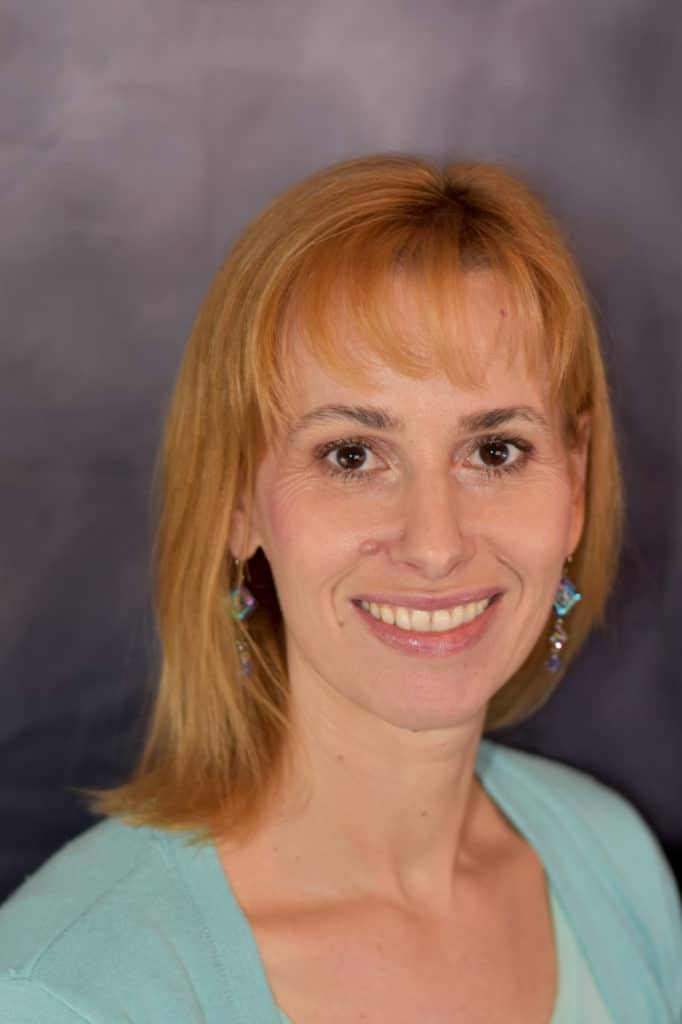As we looked out at the ocean on our most recent vacation in Hawaii, my 11-year-old son shyly said to me, “Mom, is it weird that I feel a spiritual connection with the ocean?”
I could still remember the first time we took him to the ocean in Monterey when he was two—a blustery, overcast day. He sprinted straight toward the roaring waves with arms outstretched and has done the same ever since.
“Not at all. What does a spiritual connection to the ocean mean to you?” I asked.
He tucked his chin into his shoulder, as though slightly embarrassed. “I just feel so at peace there…so right,” he said.
His words struck something tender inside me. Raised without religion by hippie parents in the 70s and 80s, I didn’t really have a conception of God, though I did loosely talk to a nebulous idea of “the universe” when I was mad at my parents or wishing the cool kids would like me.
I’ve always envied people their spiritual experiences, religious or otherwise. I know someone who felt a literal electric shock when they were baptized and another who felt melded with the divine in a powerful meditation, and one who’s heard angelic voices in a near-death situation. Still others believe God speaks to them through signs.
When, I thought, do I feel anything close to that, or as my son does–at peace, so right?
The Power of a Journal
What flashed into my mind was the first journal I received from my father around the age of eight. Bound in soft purple cloth, I’d run my fingers across the creamy white paper with its elegantly ragged edges and fill them with handwritten thoughts. That journal started my intimate connection to something greater than me through writing. I still have that journal and several hundred more that have followed in more than 35 years since.
An only child until I was nearly 15, with two working, divorced parents, I spent a lot of time alone. Yet when I wrote in my journal, I didn’t feel alone.
Inside those pages, I unfurled my own complex emotions and tried to make sense of situations I didn’t understand—the girls who bullied me at school; my godfather’s vodka-fueled behavior; my college boyfriend’s controlling and gaslighting ways. Writing helped me cope with my mother’s addiction, with my father’s risky livelihood. Slowly, what began as confessional little diary entries morphed into stories where young heroines saved the day and took up the agency in their lives I didn’t feel I had.
When I wrote, I felt beyond harm, centered, soothed.
Collaboration with Higher Self
Sometimes, when writing, I would feel as though “I” disappeared and some larger force took over. I became less a self and more a channel for some information or story that my small self couldn’t access on its own. Everything has gone onto the page, too. The mortifying moments in my life too embarrassing to speak aloud. The hurt and betrayal. The times where I behaved badly. Big, transformative life changes, and the most mundane and quotidian moments, too.
I rarely thought twice about what was happening between myself and well…my higher self on the page. It became such an indelible part of my life that I didn’t go a day without writing.
Journals began to amass. I had more of them than I did clothing when I went off to college. My husband, when we first met, learned to accept that where I went, so did the journals, no matter how little space we shared in our early apartments.
The Power of Writing
Studies in recent years have begun to show the psychological and emotional power of writing. Harvard researchers have found it helped college students with traumatic experiences both express and heal them. It has been shown to help people organize their thoughts and regulate their emotions. None of this surprises me.
Over the years, a number of therapists who have learned about my rocky and somewhat traumatic childhood experiences have marveled at how I managed not to go down a similar path. I believe the reason is writing. Writing offered me self-reflection and catharsis. While writing, I always felt connected to something more.
Writing as a Spiritual Practice
Because spirituality is often linked either to religion or to more New Age practices, few of which I participate in except for meditation, it took me years to realize that writing is, in itself, a spiritual practice. It requires faith to show up every day to a blank page and believe you will make something meaningful there. And even if what you make is not a masterpiece, it takes love to see that there is still purpose in the act of writing, no matter the outcome. It requires commitment and discipline, and often when you sit down to write, you have neither a clue nor control over what you will create.
I reflected on my relationship to writing as my son and I sat on the lanai looking out at the powerful ocean, tidal power moving the water in and out in a soothing cadence. I pulled out my latest journal to write and felt the truth in my son’s description. So peaceful, I agreed. So right.
So, I write.
Is writing part of your spiritual practice? Tell me in a comment below. And if you found this post useful, please share it!
About the Author
Jordan E. Rosenfeld is author of three novels and six books on writing craft, most recently: How to Write a Page Turner: Craft Story Readers Can’t Put Down. Her freelance work has been published in over 200 publications, including: The Atlantic, Mental Floss, The New York Times, Salon, Scientific American, Writer’s Digest Magazine, The Washington Post and more. She is also a freelance manuscript editor and copywriter. @JordanRosenfeld on Twitter or www.jordanrosenfeld.net.
books on writing craft, most recently: How to Write a Page Turner: Craft Story Readers Can’t Put Down. Her freelance work has been published in over 200 publications, including: The Atlantic, Mental Floss, The New York Times, Salon, Scientific American, Writer’s Digest Magazine, The Washington Post and more. She is also a freelance manuscript editor and copywriter. @JordanRosenfeld on Twitter or www.jordanrosenfeld.net.
Photo courtesy of Maxim Krivonos
 Would you like to write and publish nonfiction work, like articles, blog posts, books, or reports? Check out the Nonfiction Writers’ University. Get the basic education you need and the coaching to support your success as a nonfiction writer. Take advantage of monthly live educational and group coaching events. Enjoy a 30-day trial membership for only $1.
Would you like to write and publish nonfiction work, like articles, blog posts, books, or reports? Check out the Nonfiction Writers’ University. Get the basic education you need and the coaching to support your success as a nonfiction writer. Take advantage of monthly live educational and group coaching events. Enjoy a 30-day trial membership for only $1.
Do you want a more advanced approach to your nonfiction writing education? Join the Nonfiction Writers’ Univeristy MASTERS program. Receive ongoing live Certified High Performance Coaching, Author Training, and Authorprenuership Training as well as monthly educational and group coaching events. Learn all the steps to becoming a successful—and profitable—author. Discover how (finally) to write consistently, boldly, enthusiastically, and productively. Develop the mindsets, strategies, habits of the world’s most successful writers. Click here to learn more.
